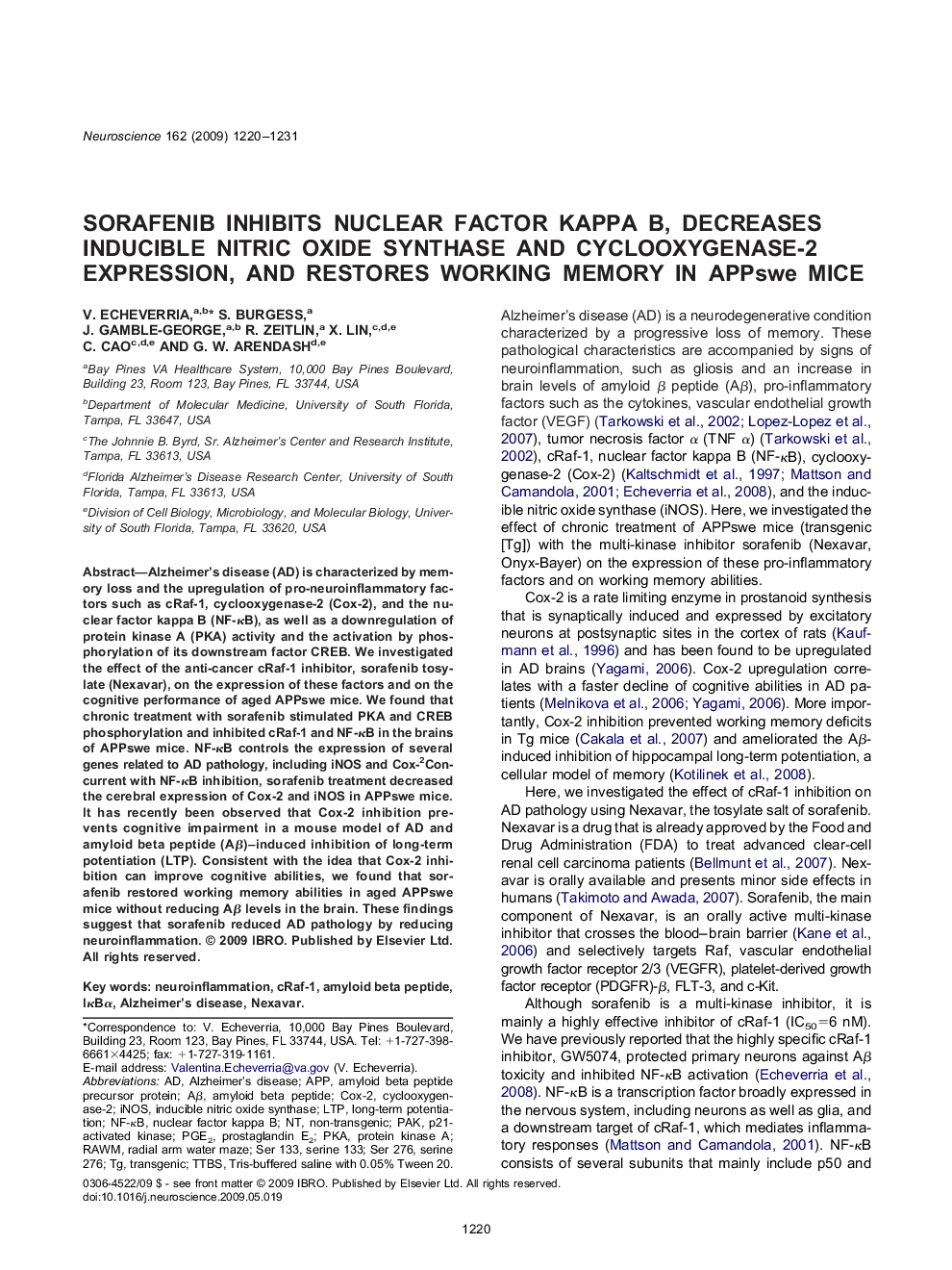| Article ID | Journal | Published Year | Pages | File Type |
|---|---|---|---|---|
| 4340242 | Neuroscience | 2009 | 12 Pages |
Alzheimer's disease (AD) is characterized by memory loss and the upregulation of pro-neuroinflammatory factors such as cRaf-1, cyclooxygenase-2 (Cox-2), and the nuclear factor kappa B (NF-κB), as well as a downregulation of protein kinase A (PKA) activity and the activation by phosphorylation of its downstream factor CREB. We investigated the effect of the anti-cancer cRaf-1 inhibitor, sorafenib tosylate (Nexavar), on the expression of these factors and on the cognitive performance of aged APPswe mice. We found that chronic treatment with sorafenib stimulated PKA and CREB phosphorylation and inhibited cRaf-1 and NF-κB in the brains of APPswe mice. NF-κB controls the expression of several genes related to AD pathology, including iNOS and Cox-2Concurrent with NF-κB inhibition, sorafenib treatment decreased the cerebral expression of Cox-2 and iNOS in APPswe mice. It has recently been observed that Cox-2 inhibition prevents cognitive impairment in a mouse model of AD and amyloid beta peptide (Aβ)–induced inhibition of long-term potentiation (LTP). Consistent with the idea that Cox-2 inhibition can improve cognitive abilities, we found that sorafenib restored working memory abilities in aged APPswe mice without reducing Aβ levels in the brain. These findings suggest that sorafenib reduced AD pathology by reducing neuroinflammation.
